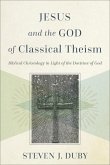"Who are you?"; "Who is He?"; "What am I?", are crucial questions we often ask at different times of our lives and stages of development and growth. With every new knowledge and information comes a reflection into our identity; of course, perspective and overall worldview. Knowing who you serve and who he is, is very critical to worship and human existence; if it will matter at all, in the overall picture of human interactions and inter-personal relationships. Religion has played a major role, either for those who subscribe to it, or those who subscribe to the religion of no religion at all. Nobody in human history can doubt or argue the place of the person of the man of Galilee; that Israelite, Jew, who walked on the face of the same territories of Jerusalem, the coast of Galilee and other regions of Israel, in what is now termed as about the first century or let's call it, 2,000 years ago, as we usually say. As a younger person, even before I took a decision to be his follower, I must have been caught in the web of finding out who he is, among multiple sources, views and impressions and attended classes where he was called a prophet. I had read materials where he was called a mythical figure. Unknown to my dad who was gathering books across different religions, I had read different things about the person of Jesus. Eventually one day, I heard a very remarkable, simple story about how he died for my sins. Not like I was totally aware of what the sins were or what they will lead to, but somehow, what we now term among us believing ones, as revelation, must have happened to me at that moment, because I suspended virtually all the confusion and as it were, the complexities or complications in my mind. I seemingly had found him in a simple message that we now call the Gospel. But over the years, we have had to contend with those who don't believe and explain to those who believe about who he is. Across multiple denominational lines, we also have shades of differences, minor disagreements here and there, of who and what the person of Jesus represents. Who is He and what does He mean in human history? Coming with that of course will mean our subscribing to the bible itself and seeing what it says about the person of Jesus. As we have said in this book, his person is the central story and character of the Christian faith and of course, to his followers as well. Within the four gospels and as written by Matthew, Jesus himself asked his own disciples: "who do men say that I the Son of Man am?" In that singular statement, we will need to unpack the coded message of that ultimate rhetoric and yet big question. When they responded, they gave him diversities of opinions of what he was referred to or how he was seen. Now you can imagine, this is over 2,000 years that, that question was posed. We can now see that, those who saw him physically, who had encounters with him or encounters with those who had encounters with him, could not even have a consensus opinion about him. Now imagine how it will seem today that this person of Jesus is still just as controversial as what men had made of him back then, even much more today. Of course, after responding, he now asked his own disciples: "who do you say that I am?" Peter spoke but Jesus' response afterwards should call for a whole lot of introspective thinking. He says: "flesh and blood has not revealed this unto you"; which means, he is known by revelation. Do not let the word "revelation" catch you unawares. Revelation simply means to uncover truth or to reveal something that had been there all along. We submit that this revelation refers to the scriptures itself and how it is received.
Hinweis: Dieser Artikel kann nur an eine deutsche Lieferadresse ausgeliefert werden.
Hinweis: Dieser Artikel kann nur an eine deutsche Lieferadresse ausgeliefert werden.








